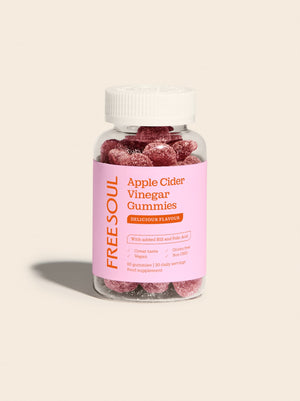PCOS (Polycystic Ovary Syndrome) is one of the conditions which is often described as a ‘hormonal imbalance’, particularly on social media! In PCOS there is a shift in the balance between male and female sex hormones. The higher level of male hormones (aka androgens), such as testosterone causes symptoms such as irregular periods, hair growth in a typically ‘male’ pattern such as on the face, back and chest, and hair thinning or loss on the head. There is also an altered balance between different female hormones, which can contribute to the menstrual irregularities and possible fertility complications. Other symptoms include oily skin, acne, weight gain or difficulty losing weight.
Contrary to what its name suggests, Polycystic Ovary Syndrome doesn’t actually involve ovarian cysts. The ‘cysts’ are actually immature eggs inside the ovary, known as follicles, which show up on ultrasound scans and look like cysts. In PCOS, whilst there is lots of immature eggs (follicles) in the ovaries, the hormonal imbalance means they don’t always ovulate in the usual way, which can lead to irregular periods.
To be diagnosed with PCOS, you need 2 of the 3 features:
- Irregular periods – meaning the ovaries are not ovulating regularly
- Higher levels of male hormones - usually picked up via symptoms and a blood test
- ‘Polycystic ovaries’ – when not ovulating regularly, the ovaries can become enlarged with lots of immature follicles which look like cysts on an ultrasound scan (but really, they are just undeveloped egg sacs)
PCOS affects as many as 1 in 10 women and yet the exact cause is still largely misunderstood.
So, what to do if you have PCOS?
Unfortunately, there is no cure, but treatment options look at managing symptoms, as well as improving insulin sensitivity. Often a combination of medications and lifestyle changes is required to manage symptoms on an individual basis.
Medications
There are some medications such as metformin which can help improve insulin sensitivity and break the cycle of hormonal disruption and regulate the menstrual cycle. For those who suffer with irregular periods, the contraceptive pill can also be useful for inducing a bleed. It’s best to chat to your GP about your options.
Exercise
Regular exercise improves insulin sensitivity, glucose tolerance and helps with weight management, which can be a struggle for women with PCOS. Studies show a combination of cardiovascular exercise as well as strength-training improves insulin sensitivity and symptoms of PCOS.
Nutrition
When talking about glucose tolerance, it can be easy to believe the myth that women with PCOS need to cut out carbs. This is not true, but the quality of the carbohydrate is important in keeping blood sugars stable. Complex carbohydrates with lower glycaemic index such as oats, whole grains, wholemeal bread, rice, pasta and legumes have been shown to be beneficial for those with PCOS, compared to more simple carbs like white bread, cakes and dried fruit. Pairing carbohydrates with plenty of fibre from plant-packed foods, lean protein and healthy fats can also help stabilise the glucose levels. A great example of a PCOS friendly breakfast would be overnight oats with a scoop of Free Soul vegan protein blend, a sprinkle of nuts and seeds for extra plant points, and a drizzle of nut butter for healthy fats to slow digestion of carbs.
Eating a variety of 30 different plants helps improve diversity of the gut microbiome which has been shown to improve insulin sensitivity and stabilise blood glucose levels. Think about all the lovely fresh ingredients you can add to your meals - not just fruit and veg, but pulses, grains, beans, fresh herbs and spices all count as a plant point!
Supplements
Supplements are intended to do what they say on the packet: supplement and not replace a healthy, balanced diet. Inositol is a supplement that has been shown to play a role in insulin signalling and improve the body’s sensitivity to insulin. Supplementing with myo-inositol in the context of a healthy diet rich in lower GI carbs, lean proteins and lots of plant-based whole foods may help manage symptoms.
Conception and fertility
A common symptom of PCOS is irregular periods as ovulation does not always occur every month. It is a myth that PCOS causes infertility, with the right management approach, many women with PCOS go on to have healthy and successful pregnancies, it just might take a bit longer. Reassuringly there are some effective treatments that can support women through this journey and the stats actually show that women with and without PCOS have a similar number of pregnancies and children!
On the whole, PCOS can be well management, but an understanding of the condition is key. If you think you may be suffering with the symptoms of PCOS then please visit your GP to seek an accurate diagnosis and discuss treatment options.








